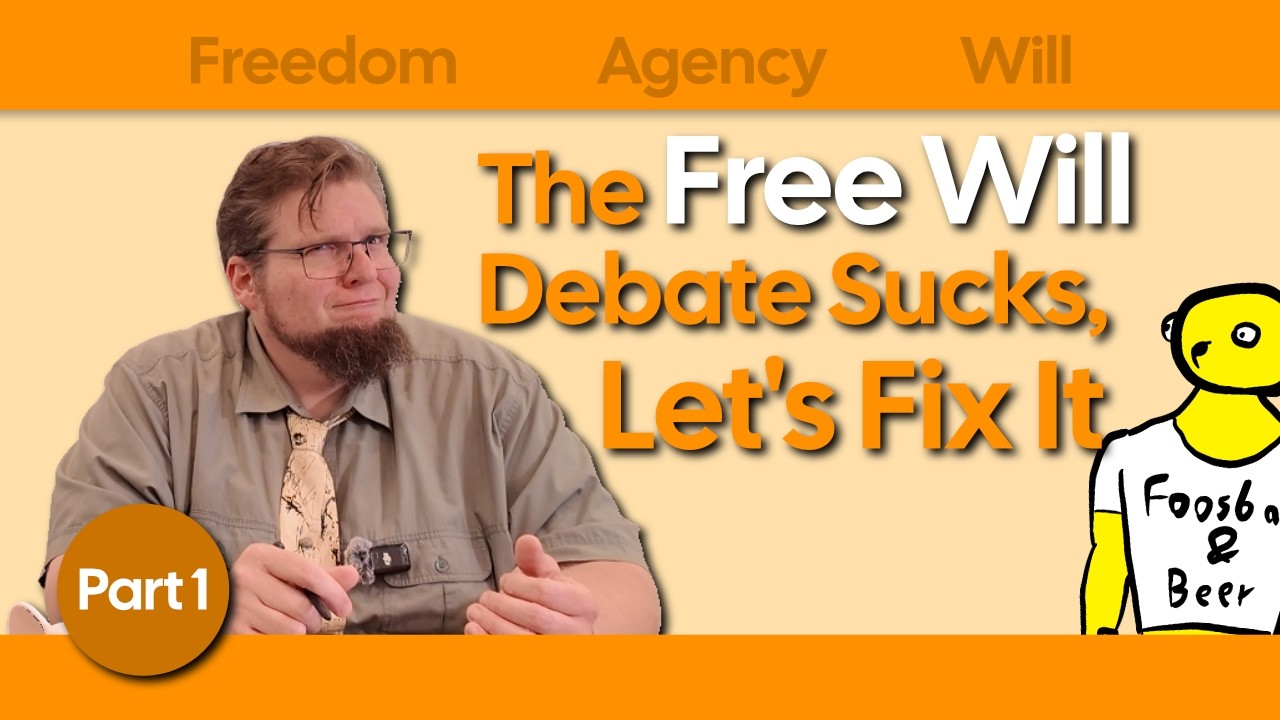The video defines free will as the interplay of freedom (external circumstances), agency (internal capacity), and will (motivation), emphasizing that while free will exists, it is often limited by various biological, psychological, and social influences. It highlights that free will is exercised through memory and imagination, enabling self-awareness and deliberate decision-making despite external and internal constraints.
The video begins by posing fundamental questions about free will, such as how much control we truly have over our actions and whether our choices are genuinely our own or merely the result of complex external and internal factors. The speaker emphasizes that the topic of free will is not just an abstract philosophical debate but a deeply important issue that influences how we treat ourselves, others, and society. He introduces the idea that while free will does exist, it is nuanced—people have the potential for free will, but this potential is often limited and can be a source of stress and anxiety.
To clarify the discussion, the speaker breaks down free will into three key components: freedom, agency, and will. Freedom refers to external circumstances and the degree to which external factors restrict our choices. Agency is about our internal capacity to act, including physical, mental, and emotional resources. Will is the internal drive or motivation to act. The interplay of these three elements determines the expression of free will. Examples illustrate how lacking freedom or agency can prevent free will from manifesting, such as a person confined physically or mentally.
The video then explores various influences that challenge the notion of free will, including biology, psychology, neuroscience, and social conditioning. Genetics and upbringing heavily influence personality and behavior, while brain chemistry and external pressures can manipulate decisions. Marketing and language also shape our choices by appealing to identity and framing our thinking. Despite these strong influences, the speaker argues that these factors are correlations rather than absolute determinants, meaning they influence but do not fully control our decisions.
A crucial insight presented is that free will is exercised not in isolated moments but through the human capacities of memory and imagination. These faculties allow us to reflect on past behaviors, envision different futures, and make decisions that can change our patterns and habits. The speaker uses a personal example of resisting impulsive behavior by planning and setting new goals, illustrating how free will operates through self-awareness and foresight rather than immediate impulses.
In conclusion, the speaker stresses the importance of distinguishing freedom, agency, and will to better understand free will. He highlights that free will depends on the freedoms and capacities society and individuals provide, and that its expression is often limited by external and internal constraints. The video sets the stage for further exploration of obstacles to free will and its scientific and religious implications in future episodes, aiming to provide a clearer, more practical understanding of this complex and vital topic.
